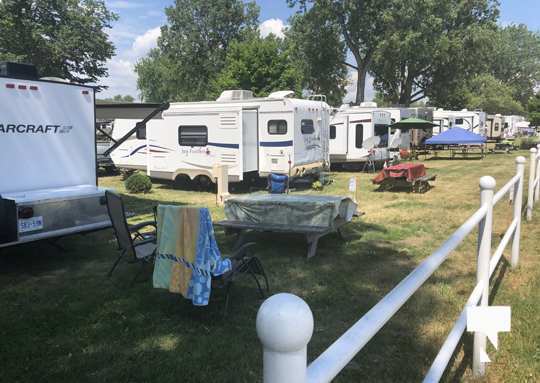By Cecilia Nasmith/Northumberland 89.7/Today’s Northumberland
The Town of Cobourg is on track to complete a project that has been in the works since 2021 – their Short Term Rental Accommodations bylaw.
Director of Legislative Services Brent Larmer reviewed the process at Wednesday’s meeting of council’s Community Services, Protection and Economic Development Standing Committee, with consultations and staff going through details and information provided not only by operators but by members of the community.
Currently STRAs are not permitted anywhere in town, Larmer said. In going forward, they have worked to achieve a balance between blanket prohibition and sufficient regulation to address local context, including the impact on rental, affordable and attainable housing, support of the local economy and tourism, and appropriate performance standards.
There are currently 140 registered Cobourg listings, slightly more than half of them active. Airbnb accounts for 74% of the, Vrbo for 9% and the remainder use both sites. Most listings are in the downtown area, with 85% of them homes and the remainder individual rooms. The average stay is three nights.
Short term rental accommodation is defined as any dwelling or portion thereof rented or available for rent by the travelling or vacationing public, available for up to 30 consecutive days.
The bylaw will set out three classes of STRA:
Class A – An owner-occupied dwelling where it’s the person’s principal residence
Class B – A multi-unit dwelling where the owner resides on the same property. You can have up to three STRAs on a property
Class C – Unoccupied by the owner, though the owner must reside in Cobourg in a secondary primary residence
Licensing fees escalate as you go up, and limitations are set on how many one owner can license.
When an application is made, they will be advising the applicant to get legal advice, as issuance of a license will not in and of itself insulate the applicant from being the subject of an RTA (Residential Tenancies Act) application or a finding that their residence is governed by the RTA.
Airbnb and Vrbo will be required to obtain licenses to operate in Cobourg, and they can only advertise properties that have obtained approvals.
A commercial insurance policy will be required, as will a local contact who will be available at all times to respond to any nuisance-related issues that may arise, and no home occupation or other rental accommodation, group home or lodging house will be permitted in a licensed STRA.
The proposed licensing fees are higher than originally planned. There are also application fees, renewal fees and (if needed) a $150 fire inspection fee.
Municipal Accommodation Tax will apply. This is levied on short-term and overnight accommodations, paid by a visitor at the time of booking. A rate of 4% is typical, and proceeds support such municipal purposes as infrastructure, tourism promotion and economic development.
Committee Chair Adam Bureau expressed his appreciation for Larmer’s offer to meet with anyone who is interested in going over all this.
“I do really think it is important that everybody understand exactly what the bylaw is and how it will affect our business and livelihood,” Bureau said.
And once the bylaw passes, Councillor Brian Darling asked, what happens to existing STRAs?
“Currently our zoning bylaw prohibits STRAs,” Larmer reiterated.
There could be a provision to allow them under new licensing requirements and call them legal non-conforming, no said, “but because we have never allowed it, we would not have to grandfather it, and I would also recommend against it to make sure everyone is on the same playing field as part of their licensing if the bylaw passes.
“We would not be knocking on the doors and saying, ‘shut ‘er down.’ We would still allow them to operate but come into compliance,” he said, mentioning a June 1 deadline.
“We will work with them to get compliance with the bylaw.”
The committee passed a resolution recommending that, at the Feb. 26 meeting of council, that approval be granted to the applicable legislation – the new STRA bylaw, as well as amendments to the Zoning Bylaw and Fees and Charges Bylaw.






















